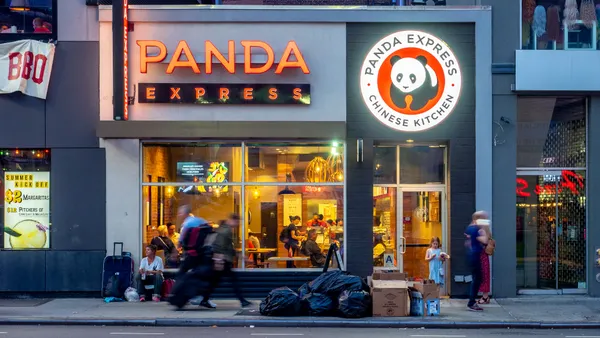UPDATE: June 5, 2020: An Illinois judge has denied a motion on Wednesday by McDonald's to dismiss a case filed by five employees that claim that the restaurant chain didn't provide workers with enough personal protective equipment to protect them from the novel coronavirus, according to Restaurant Business. This development comes amid a two week-long McDonald's employee strike in Oakland.
"We’re pleased the court has denied defendants’ motion to dismiss and ruled it will hear plaintiffs’ claims that the defendants created a public nuisance by failing to protect workers and the public from COVID-19,” Danny Rosenthal, attorney for the workers, said in a statement.
During a full-day preliminary injunction hearing that began Thursday and will continue into next week, two McDonald's employees in Chicago testified that McDonald's didn't provide enough information on how to stay safe and employees often worked close together despite the ongoing pandemic, according to Law360.
UPDATE: June 1, 2020: McDonald's told an Illinois judge Friday that it thinks it can settle a dispute with workers about the safety of employees during the COVID-19 pandemic, according to Law360. Cook County Circuit Judge Eve Reilly decided not to hear oral arguments during a public hearing on a preliminary injunction held during a video conference, and the parties instead discussed privately in a separate video chat room. The judge said the hearing would not proceed as the parties would come to an agreement on their own. McDonald's told Law360 in a statement that it has already created a 59-page guide providing restaurants national standards and has been implementing safety practices, including wellness checks, protective barriers, social distancing guidelines for staff and guests, increased hand washing and contactless operations.
Dive Brief:
- Five McDonald’s employees and their families have filed a class action lawsuit against McDonald’s, alleging that the company is not providing adequate protection against COVID-19, according to CNBC. The Chicago-area employees claim they were only given masks and gloves after striking, that they were given just one mask that has to be worn during each shift and that they have not received training on how to protect themselves or their customers. The suit also claims that a manager at one location did not inform coworkers that she had contracted COVID-19.
- Hundreds of McDonald's employees in 20 cities plan to strike Wednesday, the day before the company's annual shareholders meeting, USA Today reports. Their goal is to pressure the chain into improving its COVID-19 response, and the strike is being organized by the "Fight for $15" labor campaign. Workers also plan to run full-page ads in national newspapers to bring more attention to the issue.
- In a statement, McDonald’s said, "Crew and managers are the heart and soul of the restaurants in which they work, and their safety and well-being is a top priority that guides our decision making." The company also said personal protective equipment is in "ample supply," and that more than 130 million masks have been distributed across its domestic system.
Dive Insight:
The plaintiffs sought an injunction to force the company to supply adequate PPE and hand sanitizer, create policies that require employees and customers to wear masks and inform employees immediately of possible exposure.
Notably, this lawsuit comes on the heels of McDonald’s release of a comprehensive, 59-page guide for reopening that covers everything from which equipment to install and dining room sanitation standards to how to respond to customers who don’t follow social distancing guidelines. And, despite the plaintiffs’ allegations, the guide also includes a new nationwide standard on employee training. These guidelines likely helped McDonald's work a resolution out with the Chicago workers.
Joe Erlinger, president of McDonald’s USA, said in a statement that all restaurants "must implement these standards, in addition to state and local laws, before reopening a dining room."
McDonald's still faces other lawsuits, as well. A group of California employees filed their intent to sue the company for similar violations, for example. It is also not likely the last of the COVID-19 lawsuits against other major companies. So far, that list includes Walmart, JBS SA, Tyson Foods, Smithfield Foods and Amazon.
If any of these lawsuits are brought forth by franchised employees, it will be interesting to see how, if at all, the December labor ruling comes into play. In that ruling, the National Labor Relations Board absolved McDonald’s as a joint employer from responsibility for labor violations at franchised locations.
The COVID-19 crisis has made labor a precious commodity. The Wall Street Journal notes, for example, that McDonald’s has 100,000 fewer employees since the crisis began in March. The company can’t afford to lose any more employees as dining rooms open up and customer volume increases. In other words, these lawsuits bring into focus a much bigger question: Will essential workers — the ones who kept the engine running during the pandemic — have more leverage on the other side of this crisis?










